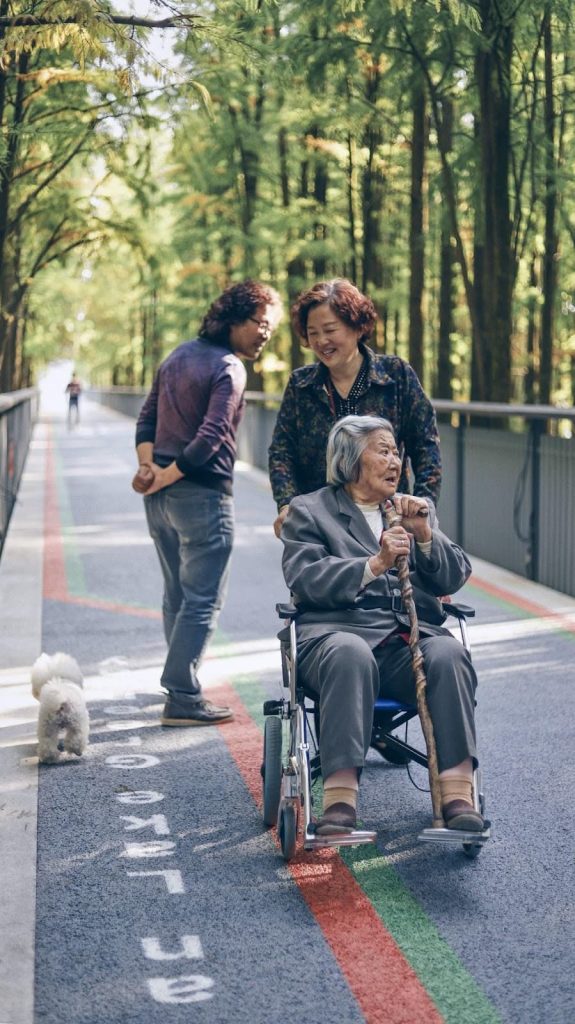7 Signs It’s Time to Consider Specialised Care Services for Aging at Home
As life expectancy continues to rise, more and more people are opting for independent living in their senior years. This is a great way to maintain independence, remain connected to the community, and continue with hobbies or other activities you enjoy. But taking full advantage of aging at home requires careful planning so that specialized care services can be brought in if required.
Many people put off making these decisions until it’s too late, which can cause serious health issues for seniors who could benefit from additional support or medical attention. To ensure your elderly loved one is comfortable at home while managing any potential risks of failing health or injuries, here are 7 signs that it might be time to consider specialized care services for aging at home.
1. Difficulty With Basic Daily Activities
For many individuals, basic daily activities like showering and dressing can become increasingly difficult over time due to age or illness. But thanks to respected home care solutions arising these days, these tasks can now be made easier and more comfortable. A trained caregiver can assist with personal hygiene tasks while also providing companionship and emotional support.
These services offer seniors the ability to continue living independently without the risk of neglecting their personal care needs. So if you or your loved one is struggling with these daily activities, it may be time to consider specialized care services.
2. Unexpected Falls or Accidents
As we age, we become more susceptible to unexpected falls or mishaps that can lead to potential injuries. Seniors are particularly vulnerable to these accidents due to issues like decreased balance and flexibility, weakened bones, and impaired vision. Even a simple stumble can result in serious consequences like fractures, head injuries, and long-term mobility issues.
That said, seniors, caregivers, and family members all need to be aware of the risks and take steps to prevent falls. Simple precautions like installing grab bars, removing trip hazards, and regular exercise can reduce the risk of falls. But if accidents keep occurring despite preventative measures, it may be time to seek the help of specialized care services to ensure the safety and well-being of your loved one.
3. Changes in Eating Habits
Unintentional weight loss or gain, lack of appetite, or difficulty preparing meals can all suggest that an elderly loved one is struggling to maintain a healthy diet. Proper nutrition is crucial in ensuring overall health and well-being, particularly for seniors who may be managing chronic conditions or recovering from illnesses.
A specialized caregiver can assist with meal preparation, ensuring that the meals are nutritious, balanced, and catered to specific dietary needs or restrictions. They can also provide companionship during mealtimes, which can greatly improve the overall eating experience for seniors.
4. Decline in Overall Physical Fitness and Self-care Practices
Our physical fitness and self-care practices tend to decline with age. This holds especially true for seniors, who may experience limitations in mobility, energy levels, or access to resources that make it harder to stay active and healthy. While aging is an inevitable part of life, there are ways to mitigate these declines and maintain physical and mental wellness.
Through regular exercise, proper nutrition, and self-care practices, seniors can give themselves the best chance at staying healthy and independent for as long as possible. Taking care of ourselves is a lifelong pursuit that goes beyond just our physical health, and specialized care services can provide the support needed to maintain these practices in older age.
5. Trouble Sticking to a Medication Regimen
Sticking to a regular medication regimen can be a challenging task for seniors, particularly those managing multiple prescriptions. Forgetting doses, taking incorrect amounts, or getting confused by complex medication schedules can lead to serious health complications.
If your loved one is having trouble managing their medication, it’s a significant sign that professional assistance may be needed. Specialized care services can provide a trained caregiver who can administer medications, monitor side effects, and communicate any concerns to healthcare providers.
6. Difficulty Concentrating or Memory Loss
Difficulty concentrating or experiencing memory loss are also significant indicators that a senior might need specialized care. Conditions like Alzheimer’s disease, dementia, or other cognitive disorders can lead to forgetfulness, disorientation, or confusion, interfering with a person’s daily routine and safety.
If you observe your loved ones frequently forgetting appointments, struggling to recall familiar names, or constantly misplacing items, professional help may be required. Specialized care services can offer cognitive therapies and activities to slow the progression of these conditions and improve the quality of life for seniors. Trained caregivers can also ensure a safe environment, assisting with tasks that might become challenging due to cognitive impairments, and providing emotional support during this potentially distressing time.
7. Increasing Isolation or Depression
Increasing isolation or signs of depression are serious matters that should not be overlooked. Living alone can sometimes result in seniors feeling isolated as they lack regular social interaction. Hearing loss or mobility constraints can further exacerbate these feelings, causing seniors to withdraw further.
Specialized care services can alleviate these issues by offering companionship, facilitating social activities, and ensuring seniors remain connected with their community.
In some cases, a trained caregiver can also identify signs of depression early and coordinate with healthcare professionals to provide appropriate treatment. Fostering a sense of independence and social connectedness is vital to the emotional well-being of seniors, and specialized care services can help with that.

Recognizing the signs that an elderly loved one may require specialized care can be an emotional and complex process. The key is to remember that the ultimate goal is their comfort, safety, and overall well-being.
By taking steps to address these indicators of potential distress, you are not only providing them with a safer environment but also improving their quality of life.
The ability to age at home with dignity and independence is something we all aspire to, and with the right support and care, it is an achievable goal. Don’t hesitate to consider specialized care services if you observe any of these signs in your loved one. Know that seeking help is not a sign of surrender but a proactive step towards ensuring a better, healthier, and happier life for our seniors.






